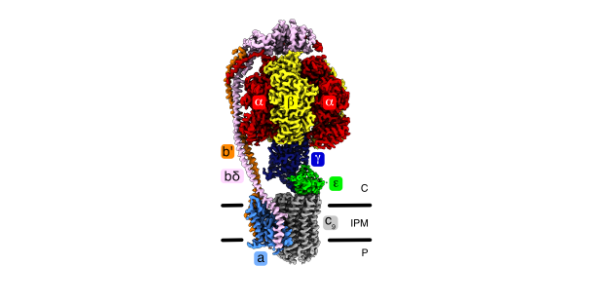
Submitted by Penny Peck on Tue, 16/11/2021 - 10:05
A research study led by Professor John Walker has been published in Proceedings of the National Acadmy of Sciences of the United States of America.
As the world tackles the COVID-19 pandemic, other wide-spread infectious diseases, including tuberculosis (TB), take their toll on mankind, and those with TB are more likely to die from COVID-19 infection. Bedaquiline (BD), an anti-TB drug, combats multi-drug resistant Mycobacterium tuberculosis by preventing a molecular machine known as the adenosine triphosphate (or ATP) synthase from generating ATP, the fuel needed to keep it alive. However, BD resistant strains of M. tuberculosis have arisen. Here, John and his colleagues, Martin Montgomery, Jessica Petri and Tobias Spikes describe features of the mycobacterial ATP synthase that are not present in the human enzyme. Potentially these features can be exploited for the development of new anti-TB drugs unrelated to BD to prevent and cure TB by inhibiting the formation of ATP by the pathogen.
Publication reference:
Structure of the ATP synthase from Mycobacterium smegmatis provides targets for treating tuberculosis
Martin G. Montgomery, Jessica Petri, Tobias E. Spikes, John E. Walker
Proceedings of the National Academy of Sciences Nov 2021, 118 (47) e2111899118; DOI: 10.1073/pnas.2111899118

